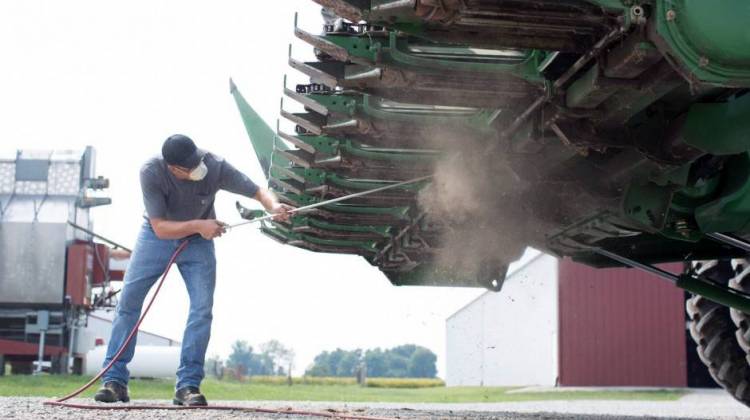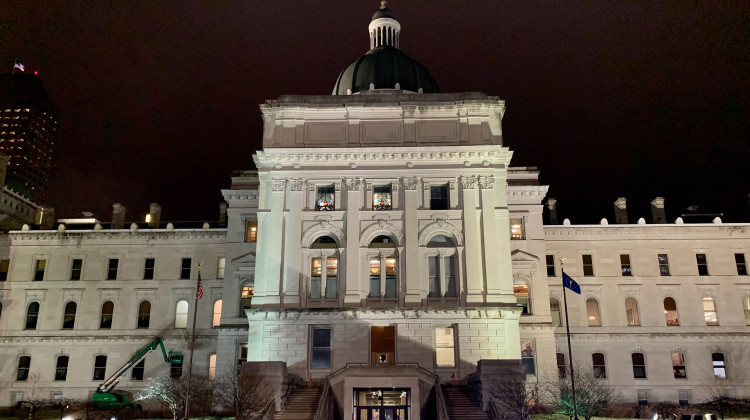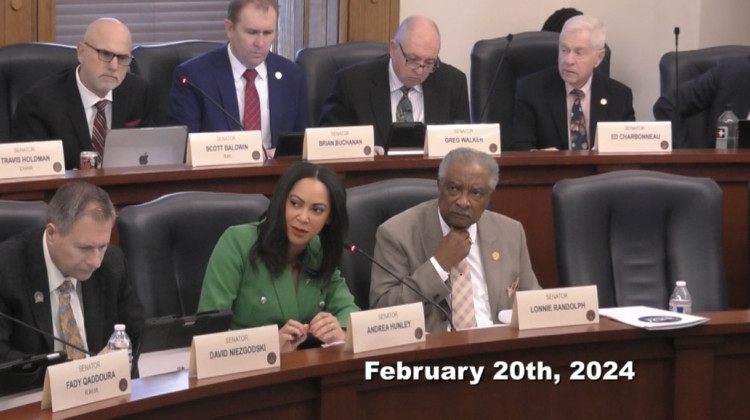
A farmer cleans a combine, one of many pieces of farm equipment that generates trackable data.
United Soybean BoardFarmers will soon have one place to store and share all the data they need to do business — from crop yields to soil samples.
The Agricultural Data Coalition’s new service is modeled after an online banking system.
The group of farm service companies and land grant institutions hopes it will refine workflow across a broad business network, where reliance on data has grown with technology.
The site will let farmers upload, track and share the data they use in their jobs – such as crop conditions, pesticide use and rainfall.
“The amount of data that’s going to be collected on farms, we feel, will explode here in the coming years,” says Purdue University agronomist Bruce Erickson. “Additional sensors are being built, and data networks are just going to enable this so much more.”
Purdue is a founding member of the coalition, he says, because analyzing all that new data will make it more valuable to farmers, researchers and farm businesses.
But today, coalition interim executive director and Indiana farmer Matt Bechdol says, they have to pay multiple providers for that service:
“They usually are using some online accounts… cloud storage… local files,” he says, and they’re trying to share that with a lot of people — from farm insurers and chemical vendors to employees and customers.
The new service will give farmers one central location for storing and sending data. It’ll also remove steps for service and supply companies to use those numbers.
“My service provider might link with my data. I pass them that data because seasonally they provide some services for me,” Bechdol says. “When they’re done with those, they can push the results of that data back into my account.”
The service gets a pilot run this summer and will fully launch in the fall.
 DONATE
DONATE






 View More Programs
View More Programs

 Support WFYI. We can't do it without you.
Support WFYI. We can't do it without you.